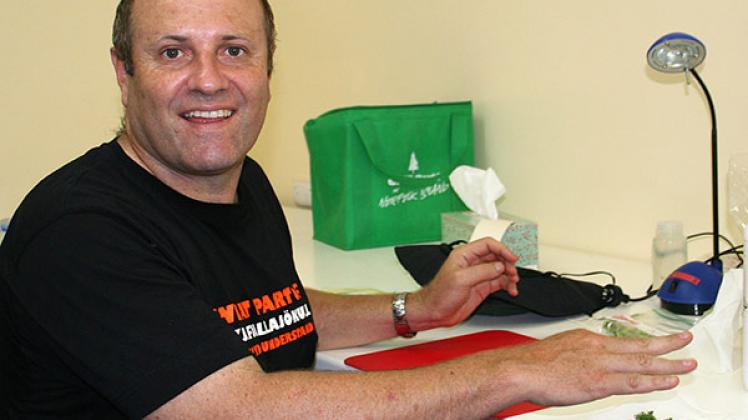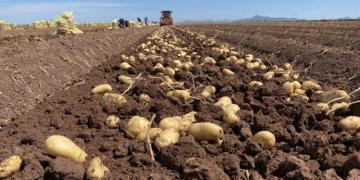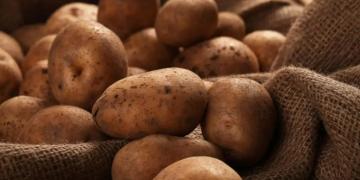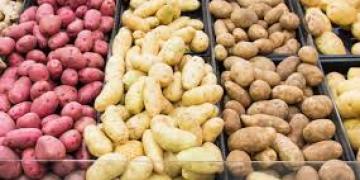Quarantine survey finds psyllid on Norfolk Island
The discovery of sap-sucking insects previously not present on Norfolk Island has given scientists a head-start on controlling a major biosecurity threat to Australia.

The tomato-potato psyllid (Bactericera cockerelli) has not previously been detected on Norfolk Island, but has now been found as part of a major quarantine survey co-ordinated by the Australian and Norfolk Island governments.
During the survey, insect traps were set by Plant Biosecurity CRC researchers Andrew Geering and John Thomas, from the Queensland Alliance for Agriculture and Food Innovation.
The psyllid was recognised in trap contents.
“The tomato-potato psyllid feeds on tomato, potato and capsicum crops,” Dr Geering said.
“It transmits a serious disease known as Zebra chip caused by the bacterium Ca. Liberibacter solanacearum, which we have also found in these crops on Norfolk Island.
“The insect and the disease would be major threats to Australian growers if they arrived on the mainland.”
Peak industry body AusVeg said Australian growers faced potential yield losses of up to 50 per cent if the Zebra chip disease complex was introduced.
There are strict quarantine measures in place for movement of goods between Norfolk Island and Australia.
The scientists said the psyllid likely came from New Zealand, arriving on illegally imported plant material or in cargo.
The psyllid and bacterium are widely spread at varying densities across the island, with no likelihood of eradication possible with the available resources.
AusVeg has been fighting to protect Australia from the psyllid by opposing the importation of fresh potatoes from NZ, which has been infested with it since 2008, following an accidental incursion in 2006.
NZ applied for market access for its fresh potatoes into Australia in 2006.
AusVeg has lobbied the Federal Government and senators directly to oppose the move.
Solanaceous crops — which are affected by Zebra chip disease — such as potatoes, tomatoes, capsicums, cucumber and eggplant, represent about $1.5 billion of Australian agricultural production.
AusVeg estimates the disease has caused more than $200 million damage to the NZ industry. It has also caused havoc in Mexico and the US.
AusVeg spokesman Andrew MacDonald said AusVeg remained “deeply concerned” about the potential impact of the TPP on the Australian potato industry.
He said the Norfolk Island discovery “puts us on the front foot in terms of preventing the pest from reaching mainland Australia”.
Fuente: http://www.weeklytimesnow.com.au/business/horticulture/quarantine-survey-finds-psyllid-on-norfolk-island/story-fnker6g8-1227302923490




